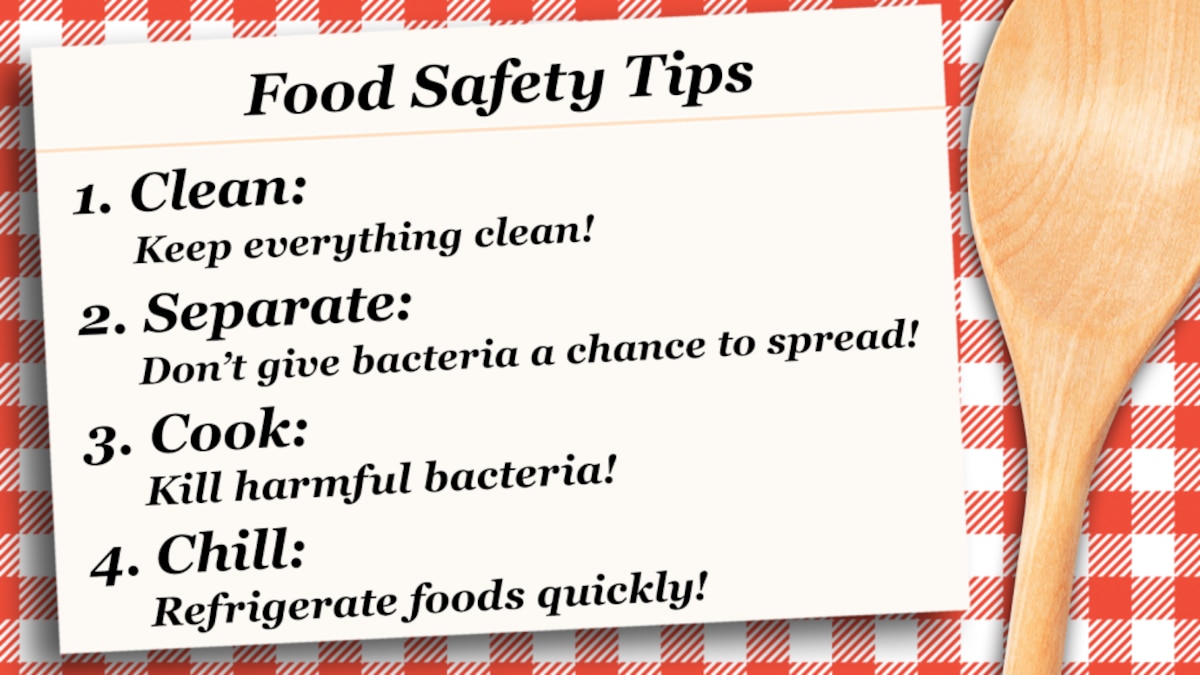Greg Chadwick
Food is an important part of many celebrations. But, don’t let food-related illness ruin your holiday.
According to the Centers for Disease Control and Prevention, outbreaks of Clostridium perfringens – the most common cause of foodborne illness in the U.S., which cause nearly one million illnesses every year – occur most frequently in November and December.
“Practicing four basic food safety measures can help prevent foodborne illness,” states Lt. Col Dan Anderson, AFMC Command Public Health Officer. He provides the following holiday food safety tips so you can cook with confidence this season.
- Clean:
- Wash hands before, during, and after food preparation. Remember to wash hands when switching tasks, such as handling raw meat and then cutting vegetables. Wash hands with soap in clean, running water for at least 20 seconds.
- Wash surfaces and utensils after each use. Clean all surfaces with hot water, dish soap and clean (or paper) towels.
- Rinse fruits and vegetables thoroughly under cool running water and use a produce brush to remove surface dirt.
- Use different utensils for different tasks. Use separate spoons and forks to taste, stir, and serve food.
- Separate:
- Don’t give bacteria the opportunity to spread from one food to another (cross-contamination).
- Keep meat, chicken, turkey, seafood, and eggs separate from all other foods at the grocery store and in the refrigerator. Prevent juices from raw meat, chicken, turkey, and seafood from dripping or leaking onto other foods by keeping them in containers or sealed plastic bags and preferably storing below ready to eat foods.
- Use separate cutting boards, plates, and utensils to avoid cross-contamination between foods that are ready to eat, and raw meat, poultry, seafood and eggs.
- Cook:
- Food is safely cooked when it reaches a high enough internal temperature to kill harmful bacteria.
- Color is not a reliable indicator of doneness. Use a food thermometer to ensure meat, poultry, and fish are cooked to the food-specific, safe internal temperature to kill germs.
- Bring sauces, soups, and gravies to a rolling boil when reheating.
- Cook eggs until the yolk and white are firm.
- Don’t eat uncooked cookie dough. Uncooked dough and batter made with flour or eggs can contain harmful germs, such as E.coli and Salmonella.
- Chill:
- Refrigerate foods quickly because harmful bacteria grow rapidly at room temperature.
- Do not leave foods at room temperature more than two hours. After you are done eating, divide the remaining food into small containers and either refrigerate or freeze.
- Set your refrigerator at or below 40°F and the freezer at 0°F. Check both periodically with an appliance thermometer.
- Don’t taste food that looks or smells questionable. A good rule to follow is, when in doubt, throw it out.
- Leftovers should ideally be used within three to four days, but no later than seven days.
Comprehensive information on food safety can be found at FoodSafety.gov.



